Ferenc Farkas: Complete Chamber Music for Cello, Volume One
Catalogue No: TOCC0345
EAN/UPC: 5060113443458
Release Date: 2016-10-01
Composer: Ferenc Farkas
Artists: Dénes Várjon,
Kristóf Baráti,
Lajos Rozmán,
Lúcia Megyesi Schwartz,
Miklós Perényi
Toccata Classics continues its exploration of the music of the Hungarian composer Ferenc Farkas (1905–2000) with this first of two releases of his chamber works for cello. As with previous albums in this series, the music here features the characteristics that make Farkas’ music so appealing: catchy tunes, transparent textures, buoyant rhythms and a fondness for Baroque forms and folk-dances. Some of these pieces speak a tougher language that show Farkas to have been in touch with his times, but it is the infectious melodic appeal of most of the music here that carries the day.
Miklós Perényi, cello
Dénes Várjon, piano (Tracks 1 – 8 , 12–28)
Lúcia Megyesi Schwartz, mezzo-soprano (Tracks 17 – 28)
Kristóf Baráti, violin (Tracks 17 – 28)
Lajos Rozmán, clarinet (Tracks 17 – 28)
Listen To This Recording:
- Alla danza ungherese No. 2 (1934)*
- I Pastorale
- II Aria con variazioni
- III Giga
- Ballade (1963)
- I Allegro moderato
- II Andante espressivo
- III Allegro
- I Allegro
- II Andante
- III Allegro molto
- Arioso (1926)
- I Intrada
- I Scherzo
- I Petit poème
- I Rondo
- I Gáspár (‘Caspar’)
- II Ládika (‘The Magic Box’)
- III Marasztalás (‘Sunbeams’)
- IV Falusi reggel (‘Morning in the Village’)
- V Mondóka (‘Violets’)
- VI A köbéka (‘The Stone Frog’)
- VII Altatódal (‘Lullaby’)
- VIII Száncsengő (‘Sleigh Bells‘)
- IX Békakirály (‘Frog King’)
- X A tündér (‘The Little Elf’)
- XI Paprika Jancsi szerenádja (‘Harlequin Serenade‘)
- XII Déli felhők (‘Midday Cloud’)
All’antica (1962)*
Folksong Sonatina (1955)*
Sonata for violoncello solo (1932)*
Quattro pezzi (1965)*
Gyümölcskosár (‘Fruit Basket’; 1946)**
Song-cycle for soprano, violin, clarinet, cello and piano baased on poems by Sándor Weöres
*First Recordings
**FIRST RECORDING IN THIS VERSION
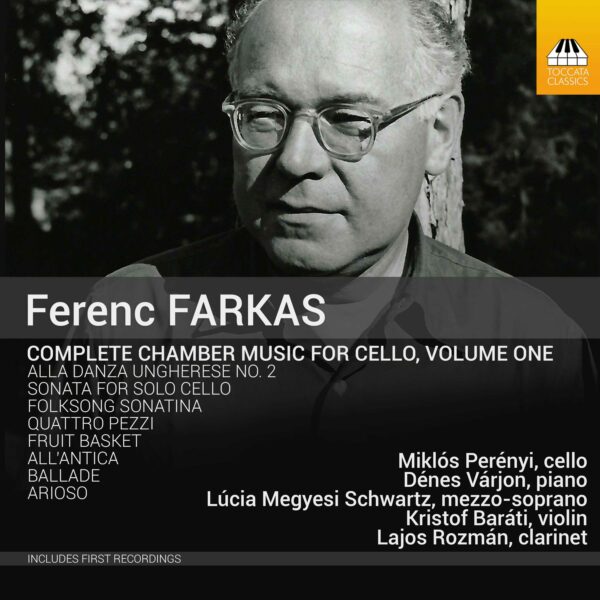
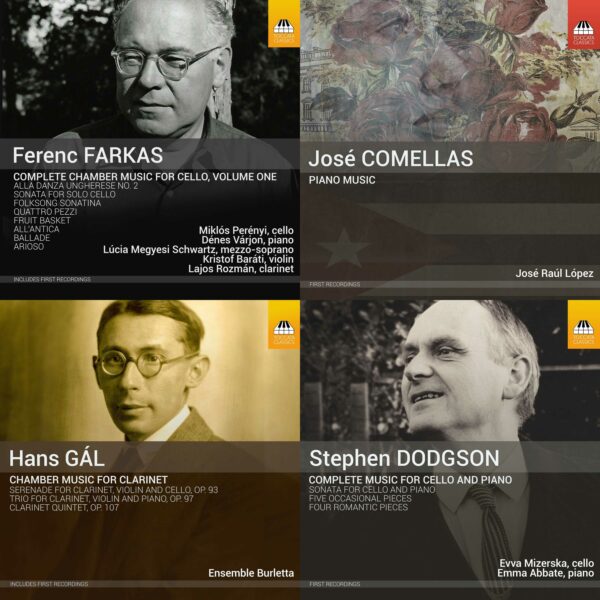
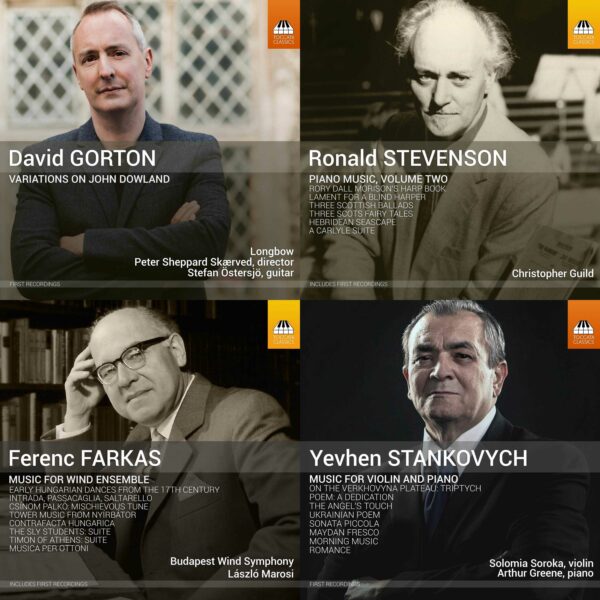
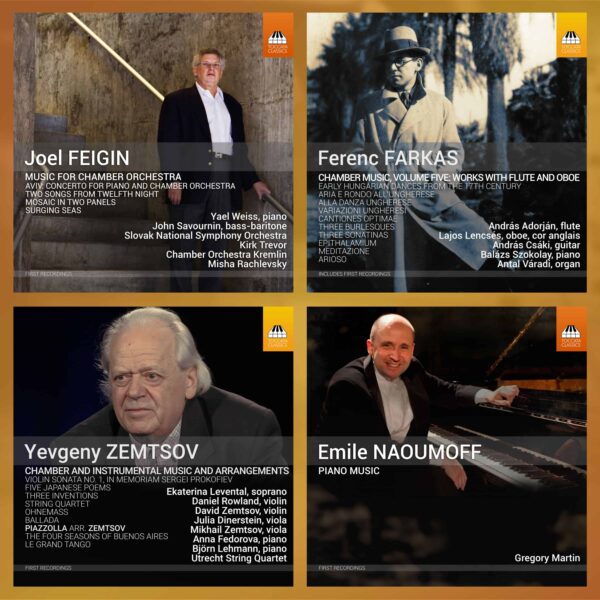
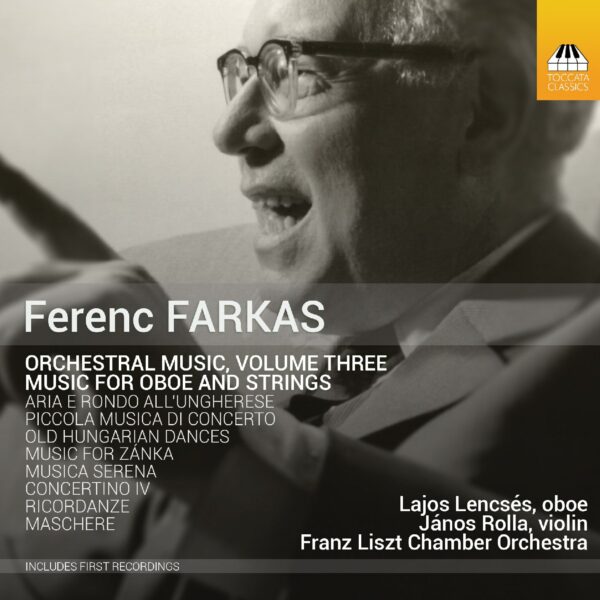
MusicWeb International :
‘I have had the good fortune to review several discs devoted to the music of Ferenc Farkas and of them the ones that have made the greatest impression have been on Toccata. […]
…she [Mezzo Lúcia Megyesi Schwartz] is fully committed, as are all the musicians, Perényi most prominently and obviously. The recording quality is fine, and László Gombos’s booklet notes up to this label’s customarily high standard.’
—Jonathan Woolf, MusicWeb International
Anaclase :
“The Sonata (1932) is the solo of a program of eight works … Apart from the length, one can see a kinship with the opus 8 of Kodály (1915). The duets with piano form the majority of works, introducing an expert of the Hungarian chamber music: Dénes Várjon… All’antica (1962) is a neo-classical attempt close to the baroque style where once again the virtuosity of Miklós Perényi is measured in the frequentation of his contemporaries – such as Lutosławski and Ligeti… Poignant and passionate, Ballade (1963) gives an overview of expressionist Farkas. As for him, Quattro Pezzi (1965) favours a rhythmic research, evolution of pages that the creator intended to his son András then attached to the study of the double bass. Let’s finish this musical meal with Gyümölcskovár (Fruit Basket, 1946)! … Farkas does not escape, delivering a cycle of twelve melodies full of delicacy, humor and grotesque, intended for adults as for children. The clarinettist Lajos Rozmán and Kristóf Baráti, “an absolute genius of the violin” … join their talent to the musicians already mentioned, while the mezzo of Lúcia Megyesi Schwartz imposes itself, imperial.”
—Laurent Bergnach, Anaclase